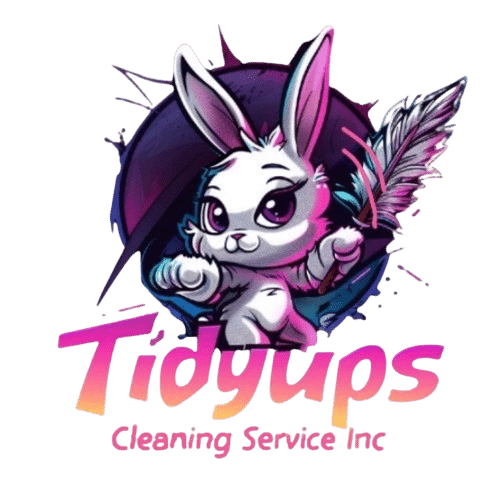In today’s fast-paced world, the role of a professional organizer has become increasingly vital. A professional organizer is not just someone who helps declutter spaces; they are skilled individuals who provide strategic solutions to improve efficiency and productivity in both personal and professional environments. Understanding this role is essential for anyone aspiring to enter the field.
At the core of their responsibilities, Professional Organizer Tips for Success assess their clients’ needs and develop tailored plans to achieve desired outcomes. This may include:
- Space Management: Evaluating how to effectively use the available space and create systems that minimize chaos.
- Time Management: Helping clients prioritize tasks to maximize their productivity.
- Emotional Support: Providing encouragement and motivation while clients navigate the emotional aspects of letting go of items.
Moreover, professional organizers often employ various techniques and tools to facilitate organization. They may utilize technology, such as apps and software, to streamline processes and provide ongoing support to clients.
With a commitment to enhancing quality of life, professional organizers must also stay updated on industry trends and best practices. This continuous learning ensures they can offer the most effective strategies tailored to individual needs.
As you consider how to be a professional organizer, remember that your role will be transformative, helping clients reclaim their space and peace of mind. Visit our Online Booking Page and get your FREE Quote today! Click Get an Estimate
Essential Skills for Professional Organizers
To thrive as a professional organizer, certain skills are essential for success. These skills not only enhance your ability to assist clients effectively but also set you apart in a competitive industry. Here are some of the key skills that every aspiring professional organizer should develop:
- Communication Skills: Being able to communicate clearly and empathetically with clients is crucial. This includes listening actively to understand their needs and conveying ideas effectively.
- Problem-Solving Skills: Every organizing project presents unique challenges. A good organizer must think critically and creatively to devise practical solutions that work for the client’s specific situation.
- Time Management: Organizers must manage their time efficiently, balancing multiple projects and deadlines while ensuring that clients feel supported throughout the process.
- Attention to Detail: A keen eye for detail helps organizers identify clutter and inefficiencies that others might overlook, allowing them to create more effective systems.
- Interpersonal Skills: Building rapport with clients is essential. Understanding their personality and preferences can significantly enhance the organizing experience.
- Project Management: Organizing often involves multiple steps and coordination with various stakeholders. Strong project management skills ensure that everything runs smoothly from start to finish.
In addition to these core skills, being adaptable and open to continuous learning will help you keep up with industry trends and client expectations. As you develop these skills, you will find yourself better equipped to meet the diverse needs of your clients and achieve success in your organizing career.
Steps to Start Your Professional Organizing Business
Starting your own professional organizing business can be a rewarding endeavor, allowing you to turn your passion for organization into a fulfilling career. Here are some essential steps to guide you through the process:
- Define Your Niche: Determine the specific area of organizing you want to focus on, such as residential, commercial, digital organizing, or specific demographics like seniors or busy professionals. This helps you target your marketing efforts effectively.
- Develop a Business Plan: A clear business plan outlines your goals, strategies, target market, and financial projections. This not only serves as a roadmap for your business but can also be useful if you seek funding.
- Set Up Your Business Structure: Decide whether you want to operate as a sole proprietor, LLC, or corporation. Each structure has its legal and tax implications, so choose one that best fits your needs.
- Establish Your Brand: Create a strong brand identity that includes a business name, logo, and marketing materials. A professional brand helps attract clients and build credibility.
- Build Your Portfolio: Initially, you may want to offer your services at a discounted rate or even for free to friends and family. Document these projects with before-and-after photos to showcase your skills to potential clients.
- Market Your Services: Utilize social media, a professional website, and local advertising to promote your services. Networking within your community and joining professional organizations can also help you gain visibility.
- Set Your Pricing: Research what other professional organizers in your area charge and set competitive rates. Consider offering package deals or hourly rates based on the complexity of the projects.
By following these steps, you can lay a solid foundation for your professional organizing business. Remember, persistence and adaptability are key as you navigate the challenges of entrepreneurship.
Effective Strategies for Organizing Client Spaces
Once you’ve established your professional organizing business, the next step is to master the art of effectively organizing client spaces. Each client’s needs are unique, so employing a variety of strategies can help you tailor your approach for the best results. Here are some effective strategies to consider:
- Conduct a Thorough Assessment: Begin with a comprehensive assessment of the space. Understand your client’s goals, preferences, and any specific challenges they face. This will guide your organizing plan and ensure it aligns with their vision.
- Sort and Categorize: Encourage clients to sort their belongings into categories such as keep, donate, or discard. This step is crucial in simplifying the process and allows clients to make informed decisions about what to retain.
- Utilize Functional Storage Solutions: Invest in a variety of storage solutions that suit different spaces and needs, such as bins, shelves, or drawer organizers. Ensure that these solutions are not only functional but also aesthetically pleasing to encourage clients to maintain organization.
- Create a System: Develop a customized organizational system for each area based on its specific function. For example, in a kitchen, you might group similar items together, label containers, and keep frequently used items within easy reach.
- Teach Maintenance Techniques: Educate clients on how to maintain their organized spaces. Provide them with tips on daily habits, regular decluttering sessions, and the importance of reassessing their organization periodically.
- Personalize the Experience: Tailor your organizing strategies to match your client’s lifestyle and preferences. Incorporate their favorite colors, styles, and items to create a space that feels uniquely theirs.
By implementing these strategies, you can effectively transform your clients’ spaces, making them more functional and enjoyable. The goal is not just to organize, but to create an environment that promotes productivity and peace of mind.
Building a Client Base as a Professional Organizer
Building a solid client base is essential for the success of any professional organizer. Without a steady stream of clients, it can be challenging to grow your business. Here are some effective strategies to help you establish and expand your clientele:
- Network Strategically: Attend local networking events, workshops, and seminars related to home improvement, real estate, or lifestyle management. Engaging with potential clients and other professionals can lead to valuable referrals and collaborations.
- Utilize Social Media: Leverage platforms like Instagram, Facebook, and Pinterest to showcase your work. Share before-and-after photos, organizational tips, and client testimonials to attract attention and build credibility.
- Offer Free Workshops: Host free workshops or webinars on organization tips and techniques. This not only positions you as an expert but also allows potential clients to experience your services firsthand.
- Build Partnerships: Collaborate with other professionals such as real estate agents, interior designers, or moving companies. They can refer clients to you who need organizing services, creating a mutually beneficial relationship.
- Develop a Referral Program: Encourage satisfied clients to refer friends and family by offering incentives such as discounts on future services. Word-of-mouth marketing is incredibly powerful in the service industry.
- Maintain a Professional Website: Create a user-friendly website that clearly outlines your services, pricing, and contact information. Include a blog with organizing tips and case studies to engage visitors and improve your search engine visibility.
By implementing these strategies, you can effectively build and sustain a client base, leading to long-term success as a professional organizer. Remember, the key is to create meaningful connections and provide exceptional service that encourages clients to return and recommend you to others.
Continuing Education and Resources for Organizers
To thrive in the ever-evolving field of professional organizing, it’s crucial to stay updated with the latest trends, techniques, and tools. Continuing education and utilizing valuable resources can significantly enhance your skills and service offerings. Here are some effective ways to invest in your growth:
- Online Courses and Certifications: Numerous platforms offer courses specifically tailored for professional organizers. Consider enrolling in programs that provide certifications, which can bolster your credibility and attract more clients.
- Attend Industry Conferences: Participating in organizing conferences allows you to connect with other professionals, attend workshops, and gain insights from industry leaders. These events are excellent for networking and discovering new tools and methodologies.
- Read Books and Blogs: Stay informed by reading books and following blogs focused on organization and productivity. Authors and bloggers often share innovative strategies and case studies that can inspire your practice.
- Join Professional Associations: Becoming a member of organizations such as the National Association of Professional Organizers (NAPO) offers access to resources, networking opportunities, and educational materials that can greatly benefit your career.
- Participate in Webinars: Many industry experts host webinars that cover various topics related to organizing. These online sessions are often free or low-cost, making them an accessible way to learn from experienced professionals.
Investing in your education not only enhances your skills but also increases your marketability and client satisfaction. To kickstart your organizing journey or to elevate your existing services, Visit our Online Booking Page and get your FREE Quote today! Click Get an Estimate.





